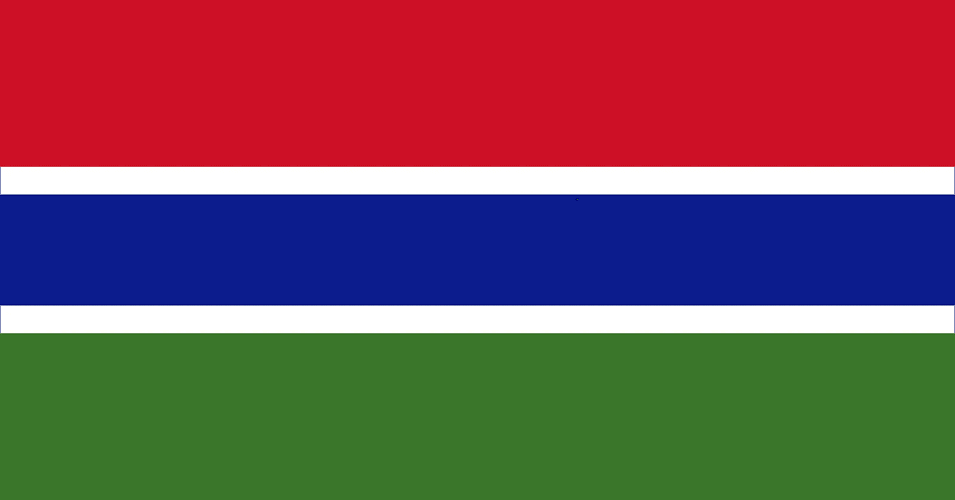Gambia’s Unwavering Spirit and the Fight for Self-Governance

Gambia Independence Day celebrated on February 18, stands as a monumental testament to the resilience and determination of the Gambian people. This annual commemoration marks the day when The Gambia liberated itself from the clutches of the British Empire in 1965, ushering in an era of self-governance and absolute sovereignty. As the smallest country in mainland Africa, The Gambia’s journey to independence is a captivating saga of endurance, political turmoil, and the unwavering spirit of its citizens.
History
The roots of Gambia’s struggle for freedom can be traced back to 1857 when the British established their rule over the newly formed colony. This marked the beginning of a century-long battle with various colonizers. Despite being the smallest country in mainland Africa, Gambia became a focal point of European attention after Prince Henry, the Navigator, accidentally discovered it in the 15th century.
Independence Movement (1901-1965)
The quest for self-governance gained momentum in 1901 when The Gambia established its legislative council under British authority. This marked the empowerment of the youth and the introduction of local leadership models. The culmination of these efforts occurred on February 18, 1965, with the enactment of the Gambia Independence Act, officially granting full independence to the nation.
Timeline of Gambia Independence Day
- 1857: British Colonisation
- The British established rule over the newly formed colony of Gambia.
- 1901: The Legislative Grant
- The Gambia establishes a legislative council under the firm authority of the British Empire.
- 1964: Distinguishing Itself
- Prime Minister Dawda Jawara ensures the country retains ‘The’ as a prefix to distinguish itself from Zambia.
- 1965: Self Governance
- The Gambia becomes a constitutional monarchy within the Commonwealth, achieving self-governance.
Gambia Independence Day Celebrations
Gambia, situated on the west coast of Africa, boasts a vibrant multicultural society with diverse ethnic groups. The citizens, known for their resilience, contribute to the country’s prosperity despite political turmoil and economic challenges. Every Gambian can fluently speak an average of four local languages, reflecting the richness of their cultural tapestry. Gambia’s journey post-independence includes significant milestones. In 1970, the country underwent a referendum and transformed into a republic with a new post for Prime Minister and the President, solidifying its political identity.
Exploring The Gambia
The name ‘Gambia’ is derived from the term ‘Kambra,’ translating to ‘Gambia River’ in the Mandinka dialect. This name was adopted upon the country’s independence. The Gambia experiences a dry season between November and May, making it the perfect time to explore its 50-mile coastline and enjoy the diverse culture.
Formerly known as Banjul, The Gambia’s official language is English, reflecting its colonial history as a British Colony.
Observing Gambia Independence Day
The Gambia beckons with its tropical climate and diverse tourism opportunities along its coastline. The warm hospitality and unique culture make it a must-visit destination. Indulge in the finest aspects of West Africa’s diverse culture through a unique Gambian feast, celebrating February 18 with friends and family.
Donate to Mutual Aid
On Gambia Independence Day, contribute to initiatives addressing malnutrition and poverty, impacting more than 58% of the population.
5 Fascinating Facts About The Gambia
- Powered by the Soil
- 80% of The Gambia’s population is employed in agriculture, forming a significant part of the country’s GDP.
- A Birdwatcher’s Paradise
- Home to diverse wildlife, The Gambia boasts over 540 unique species of birds.
- Unique Voting System
- Gambians vote using marbles, with a hole constructed for each candidate, offering a distinctive electoral experience.
- Impressive Coastline
- The Gambia’s 50-mile coastline plays a crucial role in its food chain, export, and tourism.
- UNESCO World Heritage Site
- Kunte Kinte Island, formerly James Island, holds UNESCO recognition for its historical significance in the transatlantic slave trade.
Significance of Gambia Independence Day
Gambia Independence Day sheds light on the nation’s rich history, emphasizing its unique journey toward democracy and constitutional adherence. The celebration serves as a beacon, attracting visitors and promoting tourism, a vital industry that contributes significantly to the country’s economy. Gambia Independence Day is a testament to the endurance of the nation’s rich and diverse culture, which has flourished for thousands of years.
Gambia Independence Day Dates
- 2024: February 18 (Sunday)
- 2025: February 18 (Tuesday)
- 2026: February 18 (Wednesday)
- 2027: February 18 (Thursday)
- 2028: February 18 (Friday)
Gambia Independence Day is a celebration of freedom, resilience, and cultural richness. As The Gambia continues to make strides in its post-independence journey, this commemoration stands as a reminder of the nation’s enduring spirit and its commitment to democracy and cultural preservation.
Celebrate Gambia Independence Day by immersing yourself in the vibrant culture, exploring the picturesque landscapes, and contributing to the welfare of its people.
Observer Voice is the one stop site for National, International news, Sports, Editor’s Choice, Art/culture contents, Quotes and much more. We also cover historical contents. Historical contents includes World History, Indian History, and what happened today. The website also covers Entertainment across the India and World.

